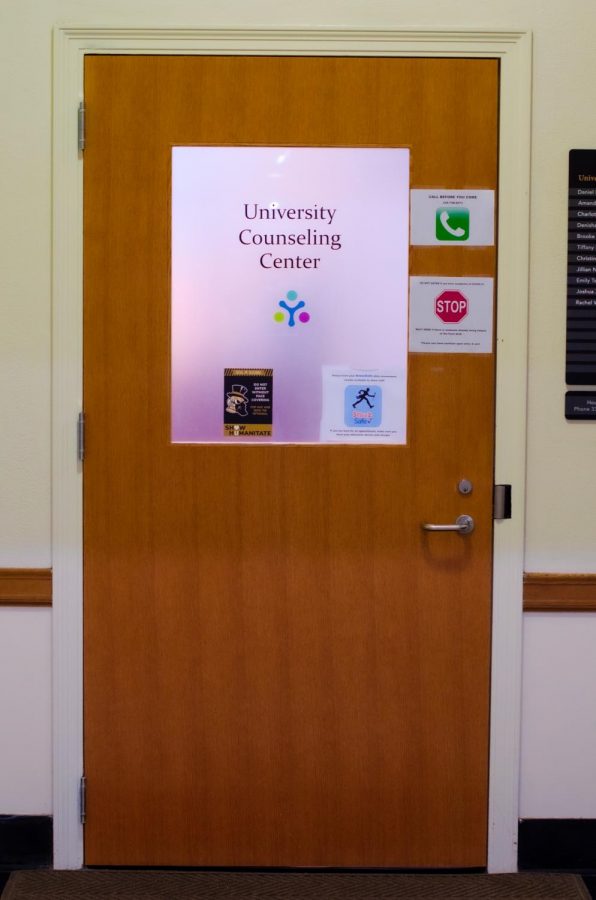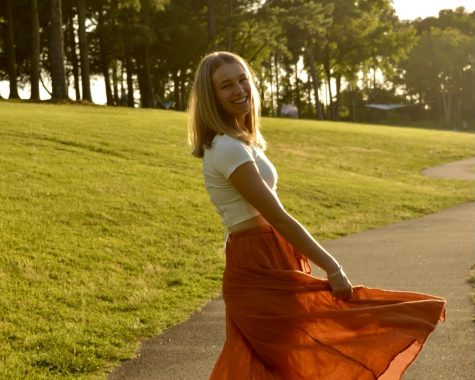Another two counselors leave the UCC over break
As the counseling center is forced to turn students away, there is no timeline for hiring new staff
Facing a new influx of patients in the midst of the COVID-19 pandemic, the University Counseling Center (UCC) is struggling with staffing shortages, most recently the departure of two counselors.
January 28, 2021
As the University Counseling Center (UCC) continues to struggle with funding cuts and an influx of new patients, two more counselors left the office over winter break.
The office has been feeling the strain for months, often unable to accommodate students for long-term treatment because of a lack of counselors to address demand. In July 2020, the Old Gold & Black reported that a Change.org petition imploring the university to fully staff the office and hire more counselors to meet demand gathered over 500 signatures. However, that petition has not inspired any change at the UCC.
“I’ve been seen [at the UCC] for a year and they told me last semester that they can no longer have me as a patient because of the lack of counselors and the influx of new patients,” said junior Dana Hindi. “I feel for them. I really do. It must be difficult to get a constant stream of people struggling in this pandemic and not have the staff to take care of them all. The UCC is an essential service and it’s unfortunate that these were the cards they were dealt. I do appreciate their hard work, though.”
Counselors Joshua Ziesel and Jillian Neill left the office to pursue other work. According to letters sent by the UCC’s acting director, Daniel Paredes, Ziesel left on Dec. 15 and Neill on Jan. 15.
Paredes says that the office has been approved to search for two additional counselors to fill those positions. The office does not have a definitive timeline for when those new counselors will be hired, adding that the office is currently evaluating what resources are needed to meet client needs. Additionally, the UCC’s new permanent director will not take over until this June, delaying the installation of a permanent head for the office. The Provost’s Office, which handles staffing at the UCC and other campus programs, did not reply to a request for comment.
The UCC is now focusing on short-term rather than long-term, Paredes said. The office continues to reassess the balance between retaining clients they’ve worked with before while serving new clients, as they might not be able to meet with clients on a weekly or biweekly basis.
“It’s something that we really struggle with,” Paredes said. “Most of us went to school for long-lasting clinical relationships.”
Despite issues, the UCC still tries to meet the needs of students who request its services. Sophomore Rachel Edwards, who went to the UCC for much of the first semester of her freshman year, had a positive experience with her counselor.
“I was anxious at first but my counselor made me feel really comforted and supported, but I know that isn’t the experience that everyone has,” Edwards said. “But as someone who had never had therapy before, I was impressed with my experience.”
However, the two counselors leave behind gaps in services the office can offer. At the UCC, Ziesel was integral to serving Wake Forest’s international students, particularly those from China.
“Ten percent of our population, thereabouts, is international students. That’s one of our questions, how do we serve international students?” Paredes said. “We’re trying to be really in tune to, are we serving, are we doing right by these students?”
Ziesel also headed up programs that served Wake Forest’s LGBTQ+ student population, such as In, Out, and In Between, a weekly therapy group oriented toward the queer community.
Paredes also cited male-identified counselors as a gap in the office’s ability to address student needs. Currently, he is the only male-identified counselor working in the UCC.
“A big chunk of our population identifies as male, and if they say, ‘I want to see a guy,’ that’s a gap for us. We’re trying to fill as many of these gaps as we possibly can,” Paredes said. “But the expectation is that if a male student wants to come in and see a female-identified provider or a queer provider, [he can] feel comfortable.”
Neill, meanwhile, served as a staff psychologist and outreach coordinator. She worked with many Wake Forest students who, according to Paredes, testified to her “positive influence” on them personally.
Paredes wrote in a letter upon Neill’s departure, “she was key in the development of a social justice committee within the center and in advocacy for persons of marginalized identities.”
Paredes admitted that the UCC has to turn away students without severe mental health issues — those who just want to talk to a therapist. The UCC’s policy is to identify other offices, such as the Learning Assistance Center (LAC) or Friend in the Forest, to help.
“The way that college mental health is now — it’s a constant pivot between access and treatment. We’re always looking at what we can do,” he said. “[We’re always] trying to accommodate students as best we can, but we might not be the best fit.”























